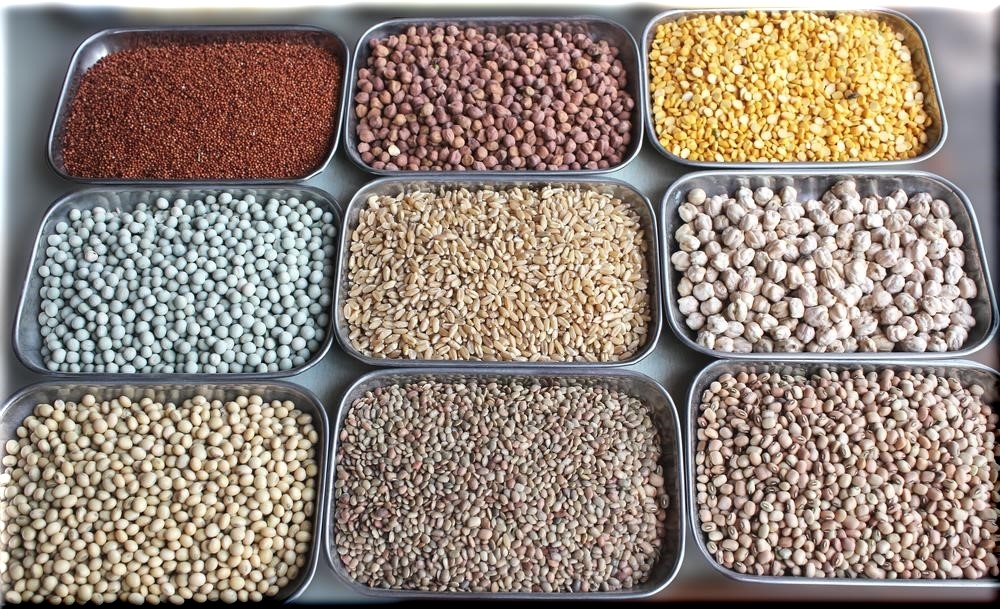Garden
Where to Buy Garden Seeds: Choosing the Right Seed Source for Your Needs
Getting started with gardening can be exciting, but it can also feel a little overwhelming. One of the first decisions you’ll need to make is where to buy your seeds. After all, choosing the right seed source can set you up for success and ensure you get the best quality seeds for your garden.
This guide will help you navigate the different options available and find the best seed source for your individual needs. We’ll explore both local and online options, consider the benefits and drawbacks of each, and help you determine which factors are most important to you as a gardener.
Choosing the Right Seed Source for Your Needs
The first step to finding the perfect seed source is to understand your own gardening goals. What types of plants are you interested in growing? Are you a beginner or experienced gardener? What is your budget? And what kind of climate do you live in? These are all important factors to consider when making your decision.
For example, if you’re a beginner gardener looking for basic vegetable varieties on a budget, a big box store or feed store might be a good starting point. However, if you’re an experienced gardener interested in heirloom seeds, organic varieties, or specialty crops, you might want to consider a local garden center, nursery, or online seed company.
Local Seed Sources
There are several local options for purchasing seeds, each with its own unique benefits and drawbacks.
- Garden Centers: Garden centers are a great place to find a wide variety of seeds, including vegetable, flower, and herb seeds. They often have knowledgeable staff who can offer advice and recommendations. However, garden centers can be more expensive than other options.
- Big Box Stores: Big box stores like Home Depot and Lowe’s offer a convenient option for purchasing seeds, especially for basic varieties. They often have competitive prices, but the quality of their seeds can vary.
- Feed Stores: Feed stores are often a good source for local varieties of seeds, including vegetables and grains. They typically offer lower prices than garden centers, but they may not have as wide a selection.
- Nurseries: Nurseries are a good place to find high-quality seeds, often locally grown and adapted to your specific climate. They typically have experienced staff who can offer expert advice, but they may be more expensive than other options.
- Farmer’s Markets: Farmer’s markets are a great place to support local farmers and find unique varieties of seeds. However, seed availability can be limited and seasonal.
- Seed Swaps: Seed swaps are a fun way to share seeds with other gardeners and find unique varieties. You can often find free or low-cost seeds, but the quality of the seeds can be uncertain.
Finding the Best Seed Companies and Catalogs
If you’re looking for a wider selection of seeds, a greater variety, or specific types like heirloom, organic, or regional varieties, you might want to explore online seed companies. There are many reputable companies that offer a wide range of options, from established classics to rare and unusual varieties.
- Heirloom Seed Companies: Heirloom seeds are open-pollinated varieties that have been passed down through generations of gardeners. They often have unique flavors and characteristics and are a great way to preserve genetic diversity.
- Popular Heirloom Seed Companies: White Harvest Seed Company, Baker Creek Heirloom Seeds, Southern Exposure Seed Exchange, Territorial Seed Company, Seed Savers Exchange.
- Organic Seed Companies: Organic seeds are produced without the use of synthetic pesticides or fertilizers. They are often a good choice for those concerned about environmental impact and food safety.
- Regional Seed Suppliers: Regional seed suppliers specialize in varieties that are adapted to specific climates. They are a great way to ensure your seeds will thrive in your garden.
- Hybrid Seed Companies: Hybrid seeds are created by cross-breeding two different varieties of plants. They often have improved characteristics, such as disease resistance, higher yields, or uniformity in growth.
- Online Seed Stores: Online seed stores offer a convenient way to browse and order seeds from a variety of companies. You can often find detailed information about each variety, including germination rates, maturity dates, and growing conditions.
Tips for Buying Seeds
Once you’ve chosen your seed source, there are a few things to keep in mind when making your purchase.
- Research the Seed Company: Before you buy seeds from a company you haven’t used before, research their reputation. Read online reviews, check their website, and see if they have any certifications (organic, heirloom, non-GMO).
- Compare Prices and Shipping Costs: Don’t just focus on the price of the seed packet. Consider the shipping costs and make sure you’re getting the best value for your money.
- Read Seed Descriptions Carefully: Pay attention to the germination rate, maturity date, growing conditions, and days to harvest.
- Plan Your Garden Before You Buy: Before you buy seeds, make sure you know how much space you have, what varieties are best suited for your climate, and how many seeds you’ll need.
Where to Buy Seeds Locally
Local seed sources offer the benefit of convenience and expert advice.
- Garden Centers: Garden centers are often the most convenient option. They offer a wide selection, knowledgeable staff, and a friendly environment. However, their prices may be higher than other options.
- Big Box Stores: Big box stores have a wide selection of basic seed varieties and often have competitive prices. However, the quality of the seeds can vary and you may not find as many specialty options.
- Feed Stores: Feed stores are a good source for local varieties of seeds, often at lower prices. However, they may not have as wide a selection or as much expert advice as other options.
- Nurseries: Nurseries are a good source for high-quality seeds, often locally grown and adapted to your specific climate. The staff typically have extensive knowledge of gardening.
- Farmer’s Markets: Farmer’s markets offer a great opportunity to support local farmers and find unique varieties. However, selection can be limited and seasonal.
- Seed Swaps: Seed swaps are a fun and community-oriented way to find unique varieties, often for free. However, the quality of the seeds can be uncertain.
Where to Buy Seeds Online
Online seed companies offer a wide selection, detailed information, and convenience.
- Heirloom Seed Companies: Heirloom seed companies are a great source for unique and flavorful varieties.
- Organic Seed Companies: Organic seed companies prioritize sustainable farming practices and non-GMO seeds.
- Regional Seed Suppliers: Regional seed suppliers offer varieties that are specifically adapted to your climate.
- Hybrid Seed Companies: Hybrid seed companies focus on improved disease resistance, higher yields, and uniformity in growth.
- Online Seed Stores: Online seed stores offer a wide variety of options from different companies, allowing you to compare prices and shipping costs.
FAQ:
What are the best places to buy garden seeds online?
Some of the most reputable online seed companies include White Harvest Seed Company, Baker Creek Heirloom Seeds, Southern Exposure Seed Exchange, Territorial Seed Company, and Seed Savers Exchange.
What are the benefits of buying heirloom seeds?
Heirloom seeds are open-pollinated, meaning they can be saved and grown true to type. They offer genetic diversity and are often adapted to specific regions.
What are the benefits of buying organic seeds?
Organic seeds are non-GMO and produced using sustainable farming practices. They are better for the environment and your health.
How do I find regional seed suppliers?
You can search online directories, contact local garden clubs, or ask experienced gardeners for recommendations.
What are the benefits of buying hybrid seeds?
Hybrid seeds are bred for improved disease resistance, higher yields, and uniformity in growth.
Conclusion
Finding the right seed source can make a big difference in your gardening success. We hope this guide has helped you understand the different options available and make an informed decision.
Do you have any favorite seed sources? Share your recommendations in the comments below! And be sure to check out our other articles for more gardening tips and advice.



Leave a Reply